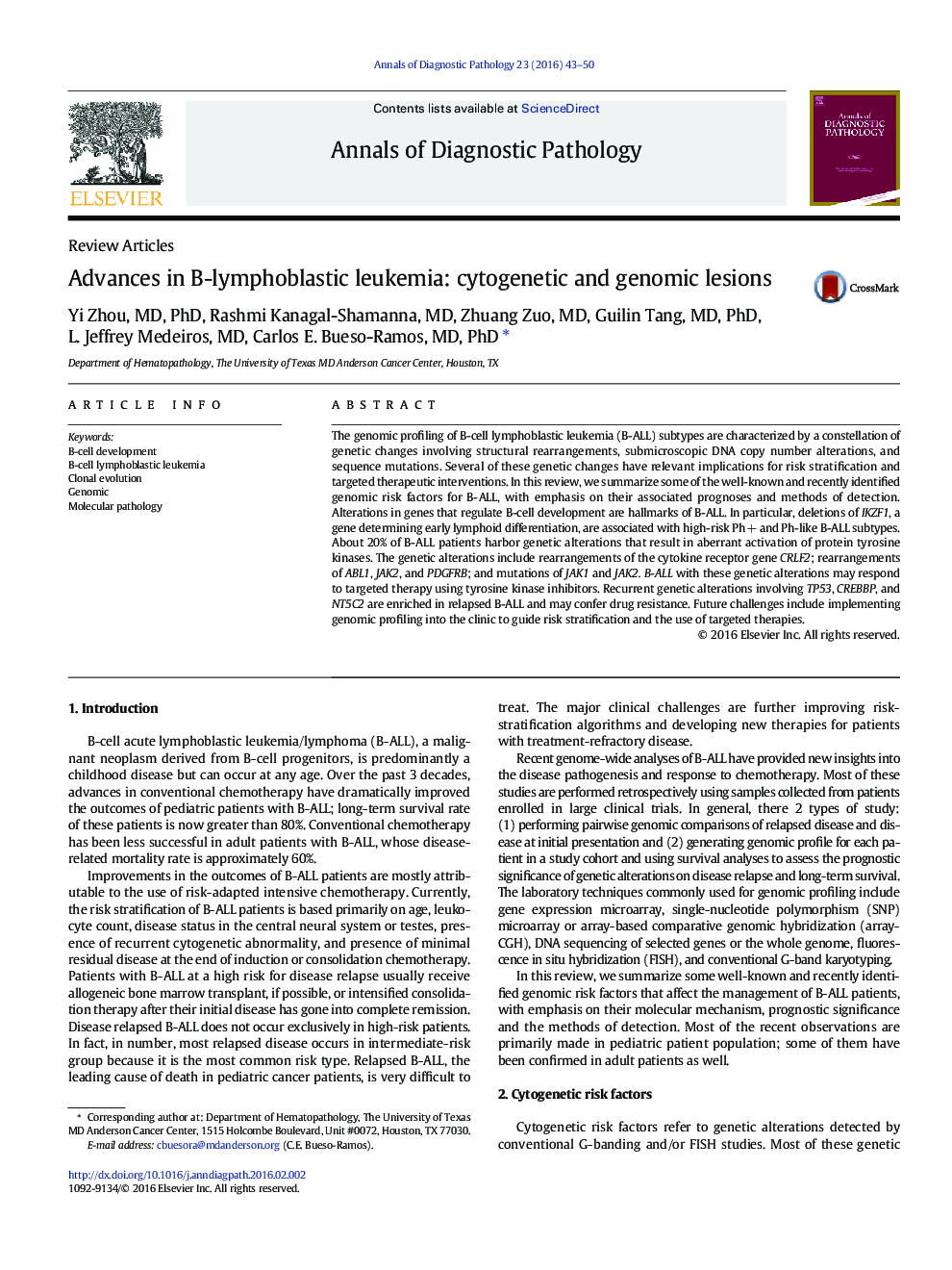| Article ID | Journal | Published Year | Pages | File Type |
|---|---|---|---|---|
| 4129670 | Annals of Diagnostic Pathology | 2016 | 8 Pages |
•Precursor B-acute lymphoblastic leukemia (B-ALL) is derived from B-cell progenitors. Conventional cytogenetic risk factors in B-ALL refer to genetic alterations detected by G-banding and/or fluorescence in situ hybridization studies and are widely used in diagnosis and risk-stratification algorithms. However, these factors alone are insufficient to fully explain leukemogenesis and responses to chemotherapy.•Ph-like B-ALL is a subtype of high-risk B-ALL that shares a common gene expression signature with Ph + B-ALL. Ph-like B-ALL also likely harbors IKZF1 deletion and de-regulation in cytokine signaling transduction.•Activating genetic alterations in cytokine signaling are detected in many Ph-like B-ALL cases, which enable targeted therapy in combination of conventional chemotherapy. This approach has proven effective in treatment of Ph + B-ALL.•Recurrent genetic alterations acquired in relapsed B-ALL may confer drug resistance in neoplastic cells. Alterations in TP53, CREBBP, and NT5C2 are enriched in relapsed B-ALL. The clonal genetic heterogeneity of leukemia contributes to disease relapse. Relapsed B-ALL remains a leading cause of death.
The genomic profiling of B-cell lymphoblastic leukemia (B-ALL) subtypes are characterized by a constellation of genetic changes involving structural rearrangements, submicroscopic DNA copy number alterations, and sequence mutations. Several of these genetic changes have relevant implications for risk stratification and targeted therapeutic interventions. In this review, we summarize some of the well-known and recently identified genomic risk factors for B-ALL, with emphasis on their associated prognoses and methods of detection. Alterations in genes that regulate B-cell development are hallmarks of B-ALL. In particular, deletions of IKZF1, a gene determining early lymphoid differentiation, are associated with high-risk Ph + and Ph-like B-ALL subtypes. About 20% of B-ALL patients harbor genetic alterations that result in aberrant activation of protein tyrosine kinases. The genetic alterations include rearrangements of the cytokine receptor gene CRLF2; rearrangements of ABL1, JAK2, and PDGFRB; and mutations of JAK1 and JAK2. B-ALL with these genetic alterations may respond to targeted therapy using tyrosine kinase inhibitors. Recurrent genetic alterations involving TP53, CREBBP, and NT5C2 are enriched in relapsed B-ALL and may confer drug resistance. Future challenges include implementing genomic profiling into the clinic to guide risk stratification and the use of targeted therapies.
